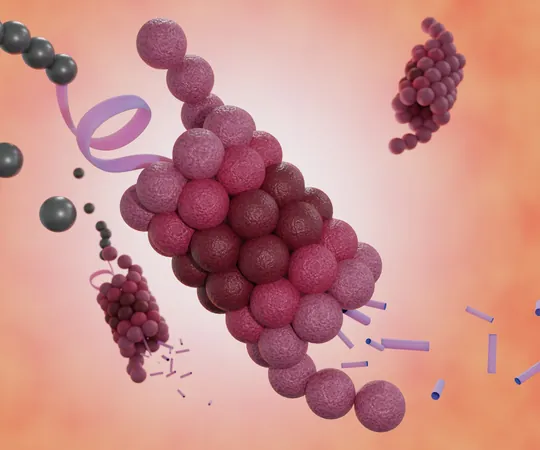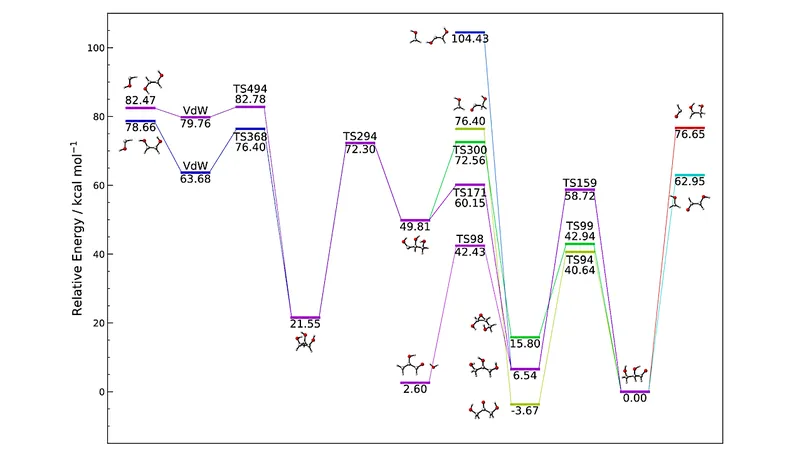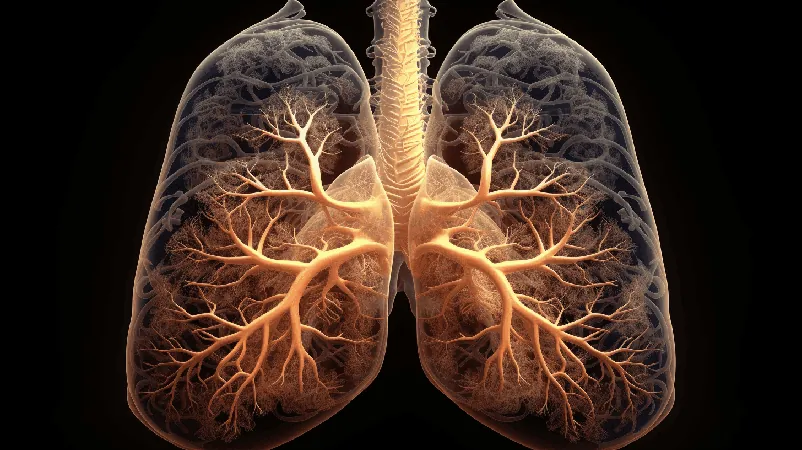
Breakthrough in Cancer Treatment: Scientists Unlock Giant PROTACs with CD36 Protein
2025-04-18
Author: Li
Revolutionizing Drug Delivery in Cancer Therapy
In a groundbreaking discovery, researchers from Duke University School of Medicine, the University of Texas (UT) Health Science, and the University of Arkansas have cracked the code on how to enhance cancer cell uptake of bulky proteolysis targeting chimeras (PROTACs). Their findings are detailed in a bold new study published in the journal Cell.
What Are PROTACs and Why Are They Game-Changers?
PROTACs are innovative small molecules designed to leverage the ubiquitin-proteasome system to eliminate unwanted proteins. As potential cancer treatments, they face an uphill battle due to their larger size, which complicates cell entry. The researchers’ novel approach centers on utilizing the CD36 protein, a ubiquitous player found on various cell surfaces, including those in the intestine, skin, lungs, and even in specific brain cells.
A New Method: Harnessing CD36 for Enhanced Drug Uptake
Instead of modifying drug molecules for passive diffusion through cell membranes, the scientists employed a technique known as chemical endocytic medicine chemistry, which capitalizes on the endocytosis process. By engineering drugs to exploit the CD36 pathway, they successfully facilitated the entry of 7.7 to 22.3 times more of the drug into cancer cells. This remarkable increase in drug delivery translated to a staggering 23-fold enhancement in treatment efficacy.
Promising Results from Animal Studies
Mouse studies showcased that this enhanced drug uptake not only bolstered tumor suppression but also upheld the stability and solubility of the drugs—a significant feat given the challenges of traditional cancer therapies.
Implications for the Future of Drug Design
This innovative strategy holds the promise to transform the landscape of drug development, enabling previously deemed unusable drugs to become viable treatments for various diseases. Study author Hui-Kuan Lin, PhD, emphasized, "It could rescue many drugs that were previously considered unusable due to poor absorption and turn them into clinically useful treatments."
Testing the Limits of PROTACs
Typically, PROTACs weigh between 700 and 1,000 Dalton (Da), but during this study, researchers focused on variants exceeding 1,000 Da. Surprisingly, these modified PROTACs not only infiltrated cancer cells with unprecedented efficiency but also demonstrated superior tumor-fighting capability.
A Surprising Revelation in Drug Delivery Science
According to study author Hong-yu Li, PhD, this finding challenges long-standing beliefs in the field of medicinal chemistry. "It was completely unexpected that molecules this large could effectively cross membranes. Identifying CD36 for drug uptake and optimizing our approach has opened new doors for targeting therapies more effectively."
Looking Ahead: Clinical Trials on the Horizon
As several companies race to develop PROTACs for conditions ranging from cancer to neurodegenerative diseases such as Parkinson's, the findings of this study signal a new era in drug delivery. However, significant testing and clinical trials are needed before these exciting strategies can be implemented in real-world therapies. Stay tuned—this could be the dawn of a new frontier in cancer treatment!




 Brasil (PT)
Brasil (PT)
 Canada (EN)
Canada (EN)
 Chile (ES)
Chile (ES)
 Česko (CS)
Česko (CS)
 대한민국 (KO)
대한민국 (KO)
 España (ES)
España (ES)
 France (FR)
France (FR)
 Hong Kong (EN)
Hong Kong (EN)
 Italia (IT)
Italia (IT)
 日本 (JA)
日本 (JA)
 Magyarország (HU)
Magyarország (HU)
 Norge (NO)
Norge (NO)
 Polska (PL)
Polska (PL)
 Schweiz (DE)
Schweiz (DE)
 Singapore (EN)
Singapore (EN)
 Sverige (SV)
Sverige (SV)
 Suomi (FI)
Suomi (FI)
 Türkiye (TR)
Türkiye (TR)
 الإمارات العربية المتحدة (AR)
الإمارات العربية المتحدة (AR)